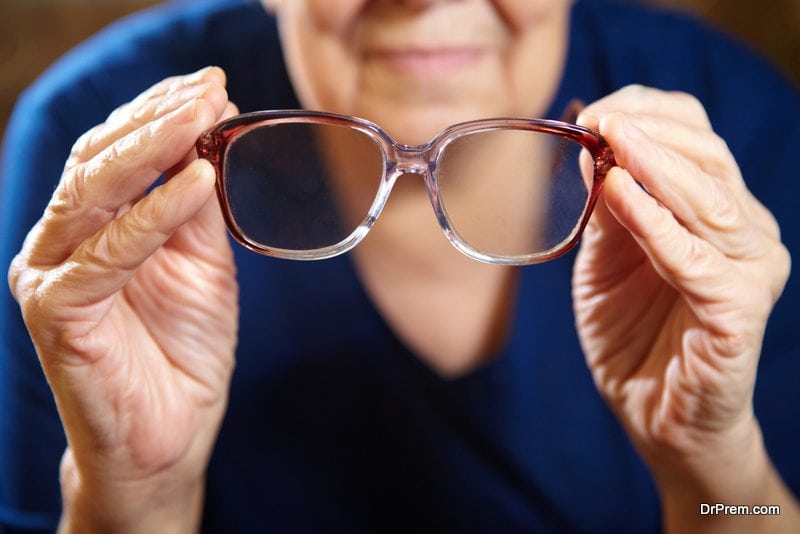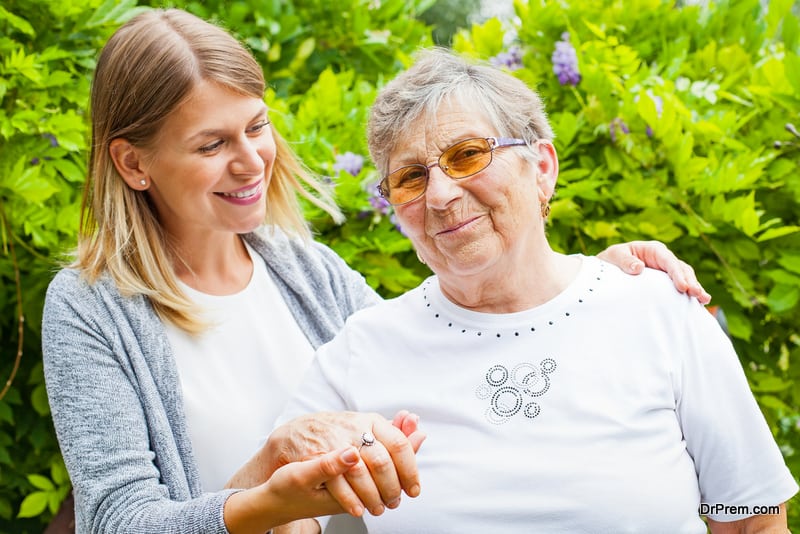When life comes full circle, children are often left caring for their parents. With age comes less mobility, loss of cognitive function, and a long list of other physical and mental conditions that require care and attention. But what should you expect when it comes time to care for your elderly parent? Are there certain conditions that are more common than others? Are there signs to look for and resources available when the time comes to diagnose and treat a certain condition? Let’s take a look.
Common Conditions
As a person ages and their health is compromised, certain conditions are more common than others. Here’s a breakdown of some medical ailments your loved one might experience and signs and symptoms to look for:
Dementia
 Any condition that affects your loved one’s mental capacity is an extremely difficult one to manage. Dementia is a term that encompasses many types of mental disorders and can be caused by other, well-known, conditions such as Alzheimer’s Disease, Parkinson’s Disease, and Huntington’s Disease. Alzheimer’s Disease is the most popular form of Dementia, affecting between 50 and 70% of patients. Certain tests and scans can determine the cause for your loved one’s Dementia. These include brain scans, blood tests, and other mental evaluations. But what about before you get your parent or loved one to the doctor? What are the warning signs of onset Dementia?
Any condition that affects your loved one’s mental capacity is an extremely difficult one to manage. Dementia is a term that encompasses many types of mental disorders and can be caused by other, well-known, conditions such as Alzheimer’s Disease, Parkinson’s Disease, and Huntington’s Disease. Alzheimer’s Disease is the most popular form of Dementia, affecting between 50 and 70% of patients. Certain tests and scans can determine the cause for your loved one’s Dementia. These include brain scans, blood tests, and other mental evaluations. But what about before you get your parent or loved one to the doctor? What are the warning signs of onset Dementia?
- Confusion
- Inability to concentrate
- Personality or behavioral changes
- Loss of memory (including recent events)
- Withdrawal/Depression
- Inability to perform normal, everyday tasks
These symptoms can appear all together or separate. Some Dementia sufferers may only exhibit a few of these symptoms while others will exhibit them all. Pay close attention to how your loved one is acting and speaking during visits. Is their living space in disarray but they we were once extremely neat and organized? Are they forgetting who you are or where they left important documents like their bank statements, life insurance policies, or a will? If they’re experiencing mood swings and irritability, this may also be a sign of onset Dementia. The best thing you can do for your elderly parent is to pay close attention to changes in behavior or cognitive function.
Arthritis
Arthritis affects nearly 350 million people worldwide and it’s not always the elderly, though older individuals are more susceptible to loss in bone density and strength. There are certain types of arthritis that more commonly affect individuals over the age of 65. These include osteoarthritis, rheumatoid arthritis, and gout. Osteoarthritis is the most common form of arthritis in elderly people when the cartilage begins to break down, leaving bones to rub against one another. This causes pain and discomfort and generally affects the joints, knees, neck, and lower back. Rheumatoid arthritis (RA) is an autoimmune disease where the body attacks the lining of the joints, in an effort to protect the body from injury or disease. RA affects all joints including wrists, shoulders, elbows, knees, hips, and feet. Gout specifically affects your feet, primarily the big toe. If your loved one is complaining of the following symptoms, they may have onset arthritis.
- Joint swelling and stiffness
- Tender/Pain at the joint
- Chronic joint pain
- Immobility of the joint
- Warmth on the joint
- Redness
Cataract
 An individual’s eyesight is another faculty that is compromised with age. The most common symptoms associated with cataracts are blurry, cloudy or foggy vision. Impaired eyesight makes it difficult to drive, read, and perform everyday tasks. If your parents don’t normally wear glasses or has a prescription that they’ve worn most of their life, any changes to their current vision could be a sign of cataract. It’s important that your loved one pays close attention to any changes in their vision, as cataract is a condition that slowly impairs vision. It’s a progressive condition that will not appear overnight. Other symptoms to watch for include:
An individual’s eyesight is another faculty that is compromised with age. The most common symptoms associated with cataracts are blurry, cloudy or foggy vision. Impaired eyesight makes it difficult to drive, read, and perform everyday tasks. If your parents don’t normally wear glasses or has a prescription that they’ve worn most of their life, any changes to their current vision could be a sign of cataract. It’s important that your loved one pays close attention to any changes in their vision, as cataract is a condition that slowly impairs vision. It’s a progressive condition that will not appear overnight. Other symptoms to watch for include:
- Sensitivity to light
- Inability to see clearly at night
- Double vision (usually in a single eye)
- Dulling of colors
- A “halo” effect around lights
So, what causes cataract? Generally, with age, the tissue that makes up your eye’s lens thins. An injury to the eye can also cause cataract. Cataract is also linked to genetics, diabetes, and steroid use.
Stroke
When a parent or loved one suffers a stroke, it can be a very scary experience. Some people don’t even realize that they’ve had a stroke because they are small or mild, with symptoms only surfacing over time. Strokes occur when the blood flow to the brain is reduced or interrupted, which prevents essential nutrients and oxygen from reaching brain tissue. This can happen when an artery to the brain is blocked, which is known as a ischemic stroke, or when a blood vessel bursts or leaks, known as a hemorrhagic stroke. Depending on the severity of the blockage and the duration, strokes may or may not cause permanent damage.
There are very important and basic ways to check if your loved one has suffered a stroke. The acronym FAST is used to check specific symptoms and can even help prevent a stroke from occurring.
- F – Facial drooping. When one side of the face is dropping or hard to move.
- A – Arm weakness. When a person is unable to lift one arm fully.
- S – Speech. Impaired speech. The inability to understand or produce speech.
- T – Time. Time is of the essence when it comes to identifying these symptoms and getting your parent to a hospital.
There are several health conditions that put people at greater risk for stroke. These include being overweight, use of drugs or alcohol in excess, high blood pressure, smoking, and sleep apnea, just to name a few. Stroke can lead to long-term effects such as memory loss, pain, emotional problems, difficulty swallowing or talking, and the inability to care for oneself.
Be Aware and Be Consistent
 When it comes to caring for your elderly parent or loved one, being aware of their normal conditions and any changes in their behavior or physical health is key in preventing long-term effects. Try visiting and speaking with them often. Take note of anything that seems different or uncommon. The sooner you can recognize changes in your loved ones condition, the faster you can get them the treatment and care they need.
When it comes to caring for your elderly parent or loved one, being aware of their normal conditions and any changes in their behavior or physical health is key in preventing long-term effects. Try visiting and speaking with them often. Take note of anything that seems different or uncommon. The sooner you can recognize changes in your loved ones condition, the faster you can get them the treatment and care they need.
Article Submitted By Community Writer




